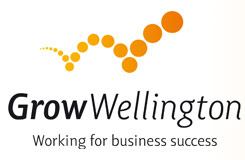Almost everyone agrees that New Zealand needs to produce more high value, knowledge based goods and services to pay its way in the world. But the gestation period from good idea to global superstar can be in the order of five to seven years – and that’s just the ones that survive. Changing the policy settings for research, development and business growth to accommodate political cycles creates uncertainty for long play economic development projects.
In 2004 I made some introductions for a little known Wellington company called Open Cloud. They had a Java based middleware product for telcos that had the potential to go ballistic, given the exploding mobile market. Seven years on the company has a UK office, solid investor backing and mobile telecommunications companies beating its door down. Research and development remains based in New Zealand, a commitment the company made very early on in its evolution. Some forward thinking individuals at New Zealand Trade & Enterprise made sure that doors were opened, even though the company had only a handful of staff at the time.
Waikato company BioVittoria developed a plant based food sweetener that has caught the attention of global markets. Again, this company is a prime example of the kind of enterprises we need to be cultivating in New Zealand. But it too started out small with just its founders and a small number of contractors. The company leveraged research done in New Zealand and diligently built up a supply chain and manufacturing plant in China to process locally grown fruit and distribute the product globally. Even though BioVittoria suspended plans for a share float in 2009, the company instead secured an influential equity partner that will help with growth.
In the face of government funding constraints NZTE recently announced yet another senior management reshuffle and cut the number of direct client-facing roles. They also dumped the Escalator programme, which has been educating small business owners for many years in the art of capital raising. So now that New Zealand Trade & Enterprise has eased itself out of minding small businesses, will there be any support for the next generation of technology and science based ventures that are stepping forward? Intermediaries such as government agencies and consultants do have a role to play in building the networks that small ventures need to scale upwards. We should not rely on economic Darwinism alone to identify winners and losers.

 It’s exciting being at the forefront of innovation in your industry and riding a growth wave. But there are dangers lurking in the breakers for service oriented web companies with big goals.
It’s exciting being at the forefront of innovation in your industry and riding a growth wave. But there are dangers lurking in the breakers for service oriented web companies with big goals.
 It has been a busy year, but I always manage to keep some time free for an important project close to my heart. It involves curating content for the
It has been a busy year, but I always manage to keep some time free for an important project close to my heart. It involves curating content for the 



 Global Entrepreneurship Week has rolled around already and Unlimited Potential is once again doing it’s bit to promote technology entrepreneurship as a career option. I’ll be working hard this week on a few last minute details for our
Global Entrepreneurship Week has rolled around already and Unlimited Potential is once again doing it’s bit to promote technology entrepreneurship as a career option. I’ll be working hard this week on a few last minute details for our